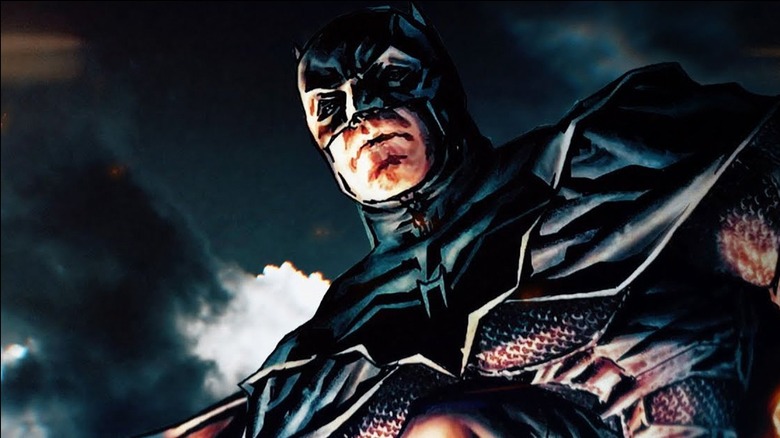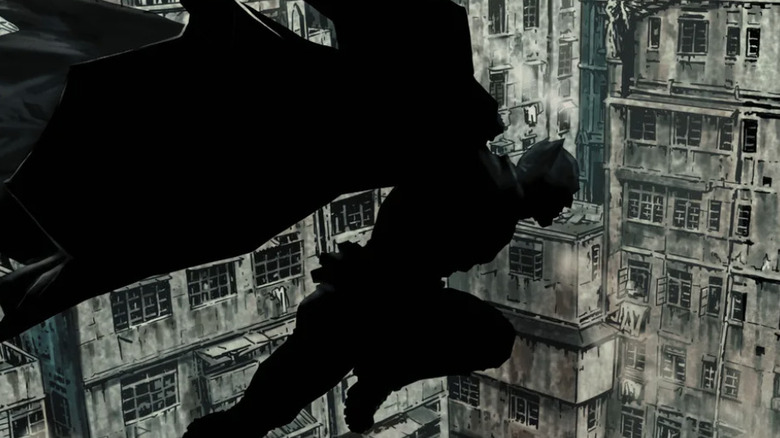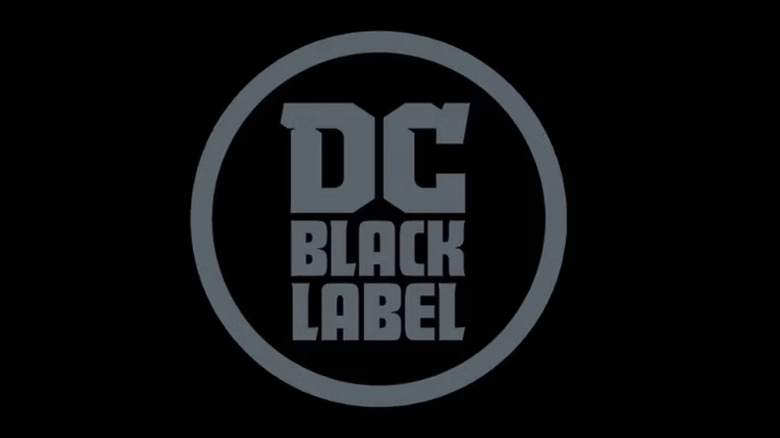How Batman's Controversial Full-Frontal Nudity Changed DC Comics
Batman's full-frontal moment in "Batman: Damned" is one of the most controversial examples of superhero nudity in DC Comics history. But in addition to making headlines, releasing the comic featuring the Dark Knight's uncensored penis led to significant changes for an entire publishing initiative.
DC Comics launched Black Label in 2018 with Brian Azzarello, Lee Bermejo, and Jared K. Fletcher's much-anticipated "Batman: Damned" limited series. The imprint was initially advertised as the home for prestige titles and standalone stories featuring iconic characters outside the constraints of the complicated comic canon. It was also designed to be DC's new home for creator-owned comics set outside its traditional superhero universe, such as James Tynion IV, Alvaro Martinez Bueno, and Jordie Bellaire's "The Nice House on the Lake." As DC President and Chief Creative Officer Jim Lee told the Hollywood Reporter, the Black Label line would help creators release their own concepts without having to deal with the difficulties of comic production.
"Batman: Damned" didn't appear all that out of the ordinary when it was announced, with a story that follows Batman teaming with John Constantine to take a deeper look into the supernatural and magical side of Gotham City. However, the first issue caused immediate controversy when the comic was released with a scene showing Batman completely naked, giving fans a clear view of Bruce Wayne's private parts. The scene caused considerable chaos at DC Comics, leading to major changes regarding the Black Label imprint's approach to comics.
The controversy changed DC's Black Label - and more
DC Comics went into damage control mode as soon as the nudity in "Batman: Damned" made international headlines, including being referenced in an episode of "The Late Show with Stephen Colbert." DC quickly decided to alter future printings of "Batman: Damned" #1 while retroactively censoring the issue's digital release. Jim Lee spoke with Polygon at the 2018 New York Comic Con and said the nudity was published due to production errors, adding, "It's made us, certainly, look at what Black Label is and think about whether these elements are additive to the story. And that's something that we'll be mindful of going forward, because I don't think we want necessarily a repeat of what happened with the first issue." The second issue of "Batman: Damned" was delayed while artist Lee Bermejo redrew several pages to avoid more controversy.
In the same interview, DC Comics co-publisher Dan DiDio admitted he regrets the nudity made it into the final product, adding it wasn't the intended first impression he hoped the Black Label line would make. "It's something we wished never happened," DiDio told Polygon, "because it really took the attention away from what we thought was quality storytelling, and that's not the way we see this imprint."
Around the same time, DC Comics also axed the religious satire series "Second Coming" (by Mark Russell and Richard Pace) to avoid further controversy. The series follows Jesus Christ becoming roommates with Earth's strongest hero and was canceled by DC to avoid making headlines again after receiving early backlash from religious groups, including a petition signed by nearly 140,000 people. The series, which was intended to be part of the now-defunct Vertigo imprint, eventually found a home at Ahoy Comics.
What has DC's Black Label become?
The Black Label imprint still exists today, and several acclaimed comics, including the terrifying "Batman: City of Madness" by Christian Ward and the recently concluded "Peacemaker Tries Hard" (by Kyle Starks, Steve Pugh, Jordie Bellaire, and Becca Carey), were published within the last year. But what defines a Black Label series has been muddied since "Batman: Damned" debuted.
Black Label's canonical nature is up for debate. Writer Geoff Johns originally stated his and Jason Fabok's "Three Jokers" was canon to the DC Universe, contradicting the imprint's original mission statement, but that doesn't seem to be the case several years after the story was published. Changing canon mid-to-post publication isn't a new concept, though, as another one of Johns' stories, "Doomsday Clock" (with Gary Frank), which came out before the Black Label imprint started, appeared to have major implications on future DC storylines but ultimately shifted out of canon midway through its publication. As for creator-owned books, Black Label never really became much of a home for them outside of "Nice House on the Lake" and publishing reprints of Vertigo titles such as "Y: The Last Man" and "IZombie."
Despite producing quality stories (Looper dubbed "Batman: Damned" as essential reading before watching Matt Reeves' "The Batman"), DC's Black Label seems to have lost its meaning as an imprint. Thanks to its rocky start, it was forced to navigate tricky waters and struggled to find consistency afterward. With the rumored return of Vertigo potentially on the horizon, it will be interesting to see how long Black Label sticks around or if its time has already come and gone.


